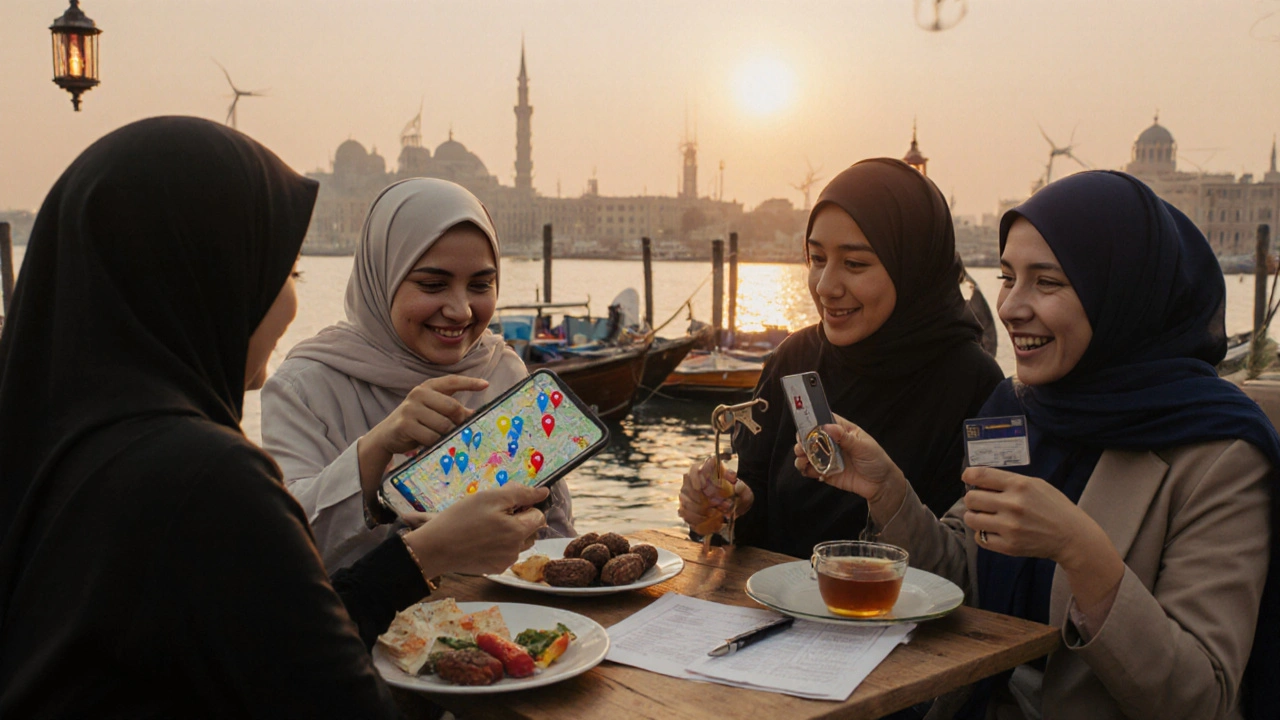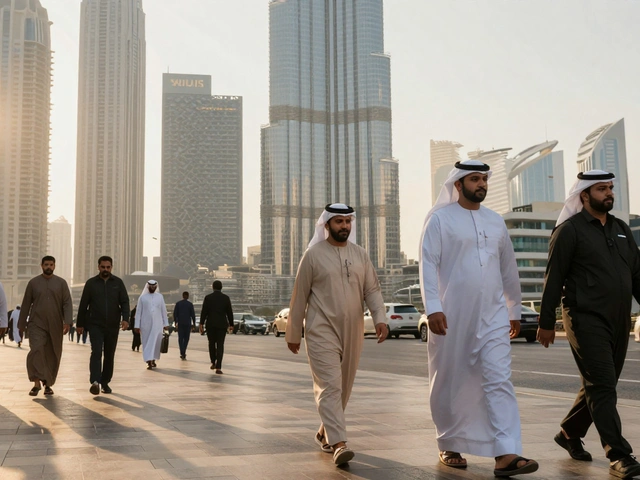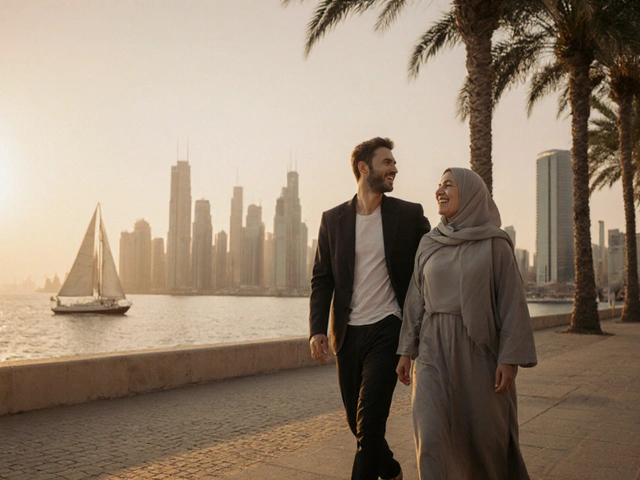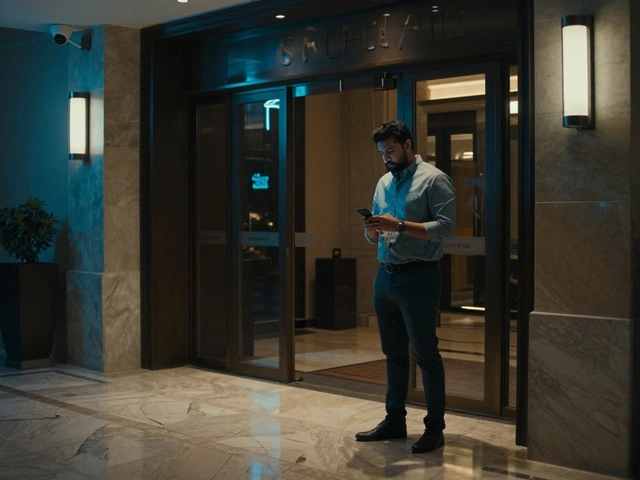If you picture Dubai only as skyscrapers and flashy malls, you’re missing the heartbeat of the city. A huge part of that pulse comes from the Filipino community-especially the women who power hotels, clinics, airlines, retail floors, and creative studios. Many are balancing careers, family back home, and a full life in a fast city. Curious about Filipino girls in Dubai-where they live, work, socialize, and how to connect respectfully? This guide breaks it down in plain language, with real tips.
Filipino women in Dubai are a diverse group of Overseas Filipino Workers and residents shaping the city’s service, healthcare, aviation, and creative sectors while maintaining strong cultural ties.
TL;DR
- There are hundreds of thousands of Filipinos in the UAE; a big share lives and works in Dubai across hospitality, healthcare, retail, aviation, and homes.
- Popular areas include Deira, Al Rigga, Satwa, Bur Dubai, and Al Nahda for value; JLT, Marina, and Downtown for higher budgets.
- Respect UAE laws: modest PDA, no harassment, be mindful online; know your contract and rights under UAE Labour Law.
- Community hubs: churches, Filipino restaurants, festivals, and social sports. Networking happens offline and in moderated Facebook groups.
- Newcomers: secure a legal job offer, process DMW (OEC) and medicals, get Emirates ID and health coverage, and budget for rent and transport.
Who we’re talking about: the community and the city
By most recent estimates from the Philippine Statistics Authority and UAE government briefings, around 700,000 Filipinos live in the UAE, with a large slice in Dubai. You’ll find students, cabin crew, nurses, baristas, creatives, engineers, and entrepreneurs-plus many household service workers. Most are here legally on work visas with standard contracts and health coverage.
Dubai is the most populous city in the United Arab Emirates, known for finance, tourism, logistics, and a majority expat population. The city runs on diversity: South Asian grocers next to Arabic bakeries, Filipino salons beside African cafes. That mix is exactly where Filipino culture thrives-karaoke nights, tinola on Fridays, and big church gatherings.
United Arab Emirates is a Gulf nation of seven emirates with federal laws on labour, residency, and public decency that apply to residents and visitors. Knowing the rules keeps you safe and makes life smoother for everyone.
Where Filipino women live, eat, and hang out
Filipino neighborhoods are scattered across old and new Dubai. You’ll hear Tagalog in supermarkets, on the bus, and in salons-especially in areas with value-for-money housing and easy metro access.
| Neighborhood | Typical Rent for Room/Studio (AED/mo) | Commute | Vibe & Why It’s Popular |
|---|---|---|---|
| Deira / Al Rigga | 2,000-4,000 (room), 3,500-6,000 (studio) | Red/Green Line metros, dense bus routes | Budget-friendly, Filipino groceries and eateries, lively streets |
| Satwa | 2,200-4,500 (room), 4,000-6,500 (studio) | Bus-rich, close to Sheikh Zayed Road | Walkable, mixed expat community, many salons and tailors |
| Bur Dubai / Karama | 2,500-5,000 (room), 4,500-7,500 (studio) | Red Line metro, short rides to Downtown | Old Dubai charm, easy access to consulate area, diverse food |
| Al Nahda / Qusais | 2,000-4,000 (room), 3,800-6,500 (studio) | Green Line metro nearby, buses | Family-friendly, value rentals, quick hop to Sharjah |
| JLT / Dubai Marina | 3,500-6,500 (room), 6,500-10,000 (studio) | DMCC/Marina metro, tram | Modern towers, lakeside walks, near beach and media hubs |
Food is a big anchor. Filipino staples like Jollibee, Ihawan grills, and home-style turo-turo spots are spread across Deira, Satwa, and Karama. Weekend lines at Jollibee are proof of homesickness-and good chicken. For prayer and community, St. Mary’s and other churches get packed on weekends, and social groups often organize post-service meetups and volunteer drives.
St. Mary’s Catholic Church (Dubai) is a major Christian parish where many Filipinos attend services, volunteer, and join community groups. Expect bulletin boards filled with job postings, choir sign-ups, and charity events.
Work, careers, and visas: what’s common in 2025
Filipino women work across the city-front desks, coffee counters, hospital wards, cabins at 38,000 feet, reception desks in real estate, and back offices in finance. Household service workers and nannies are also a large group. Pay varies widely by sector, experience, and employer benefits.
Overseas Filipino Workers (OFWs) are Filipinos employed abroad; in Dubai they often hold employment visas, health insurance, and standard contracts. Salaries might look like this (typical-not guarantees):
- Retail/Customer service: AED 3,000-6,000 plus incentives
- Hospitality (front office/servers): AED 2,800-6,000 plus service charge
- Healthcare (nurses): AED 6,000-12,000 depending on experience and licensing
- Cabin crew: AED 8,000-12,000 including allowances
- Admin/Executive assistants: AED 4,500-9,000
- Household service workers: based on the POEA/DMW standard contract and employer-provided housing/food
Contract terms matter more than headline pay: check housing, transport allowance, health insurance, overtime, and annual ticket home. A reputable employer will provide an offer letter, a proper work visa, and onboarding for your Emirates ID.
UAE Labour Law is the federal legal framework (updated under Federal Decree-Law No. 33 of 2021) covering contracts, working hours, leave, and end-of-service benefits. Domestic workers are covered by a specific law, with rules on weekly rest days and decent work conditions. Always read your contract. Keep digital copies of passport, visa, and labour card.
Department of Migrant Workers (Philippines) is the agency that regulates overseas employment, standard contracts, and Overseas Employment Certificates (OEC). Before departure, Filipinos should secure an OEC, attend pre-departure orientation, and ensure the job offer matches the deployed role and salary.
Daily life: costs, transport, healthcare, and money
Budgeting is the quiet superpower here. Rents are the biggest bite. Many share rooms to save; others split a one-bedroom. Utilities (DEWA), internet (Etisalat or du), and groceries add up, but a disciplined plan keeps you comfortable while remitting home.
- Rent: see ranges above; most pay 3-12 cheques per year.
- Transport: Dubai Metro and buses are reliable; get an NOL card for tap-in fares.
- Groceries: budget chains and Filipino minimarts help; bulk buys reduce cost per meal.
- Healthcare: employer-provided insurance is required; use network clinics to avoid extra fees.
- Remittances: exchange houses like Al Ansari or digital wallets send money quickly; compare fees and FX rates.
Weekends are for resets: laundry, church, video calls home, and a bit of desert or beach time. Community sports-volleyball, basketball, badminton-are huge. Many join choir groups or charity drives that double as a social circle and support system.
How to meet and network-respectfully and safely
Want to connect with the Filipino community without being awkward? Keep it respectful and human. No stereotypes, no weird comments about accents or looks-just be normal.
- Start in public community spaces: church groups, volunteer events, language exchanges, or sports leagues. Be present, not pushy.
- Learn basic greetings: “Kumusta?” (How are you?), “Salamat” (Thank you). It’s a small gesture that feels big.
- Food is friendship: invite friends to a casual merienda, or try halo-halo and pancit together.
- Keep UAE etiquette: minimal PDA, avoid intrusive questions, be mindful around religious gatherings.
- Online, be polite and transparent. Don’t spam or pressure. Dubai’s cybercrime rules can apply to harassing messages and misuse of photos.
Dating? Dubai is a modern expat city, but public decency still applies. Coffee walks by the Marina, group dinners, or art shows at Alserkal are safe bets. If someone says no or seems uncomfortable-stop. Consent isn’t cultural; it’s universal.
Know your rights and the legal basics
Understanding the rules makes life easier-and safer.
- Public decency: dress modestly in official buildings and religious spaces; avoid strong PDA.
- Alcohol: allowed in licensed venues; stay within the law, don’t drink and drive, and don’t carry for friends without permits.
- Social media: defamation, insults, and sharing private images without consent are crimes. Ask before posting anyone’s photo.
- Employment: read your contract, track your hours, and understand leave and end-of-service. Keep copies of all documents.
- Domestic workers: weekly rest days and humane treatment are legal requirements. For issues, contact your embassy or labour channels.
If something feels unsafe-workplace or personal-document it. Use official apps like Dubai Police or government service portals when you need help. Community groups can support you, but formal help lines and legal routes are the right path for serious issues.
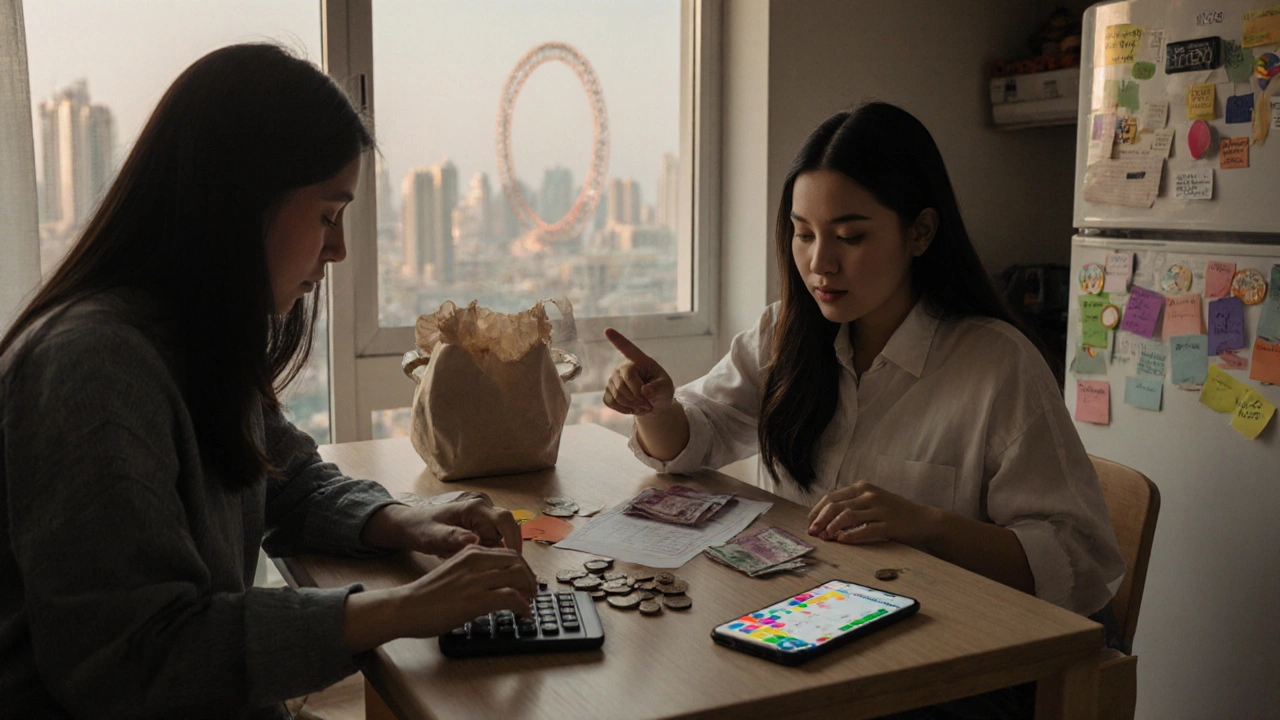
Newcomer roadmap: from job offer to settled
Here’s a clean path many follow from offer letter to first payday in Dubai.
- Secure a legitimate job offer: verify the company, ask for a written offer with salary, benefits, and role.
- DMW processing: attend pre-departure orientation, sign the standard contract if applicable, and get your OEC.
- Medical checks and visa: complete employer-guided medicals; ensure the correct visa category matches your job.
- Arrival: your employer should handle medical screening, biometrics, and Emirates ID. Keep your passport accessible.
- Housing: weigh shared rooms vs. studios; factor commute and bills. Don’t hand over deposits without a signed tenancy contract.
- Banking: open a salary account where your employer can transfer on time. Compare fees.
- Phone & data: get a prepaid SIM with proper registration. Avoid public Wi‑Fi for sensitive logins.
- Routine: learn your commute, nearest clinic, supermarket, exchange house, and church or community space.
Culture notes: faith, family, and the little things
Family is central for many Filipinos, whether in Dubai or back home via daily video calls. Expect weekend gatherings, birthdays that become full buffets, and godparent duties shared across friends. Faith communities are strong; many women sing in choirs or volunteer with outreach groups.
Language switches happen mid-sentence: English for work, Tagalog with friends, a dash of Arabic for taxis or greetings. Humor is big-especially self-deprecating and quick. If you’re new to the community, relax into it. Bring kindness and curiosity.
Key institutions and where they fit
Several institutions anchor the Filipino experience in Dubai and the wider UAE:
- Philippine Consulate General in Dubai is the mission providing passports, notarial services, assistance to nationals, and voter registration.
- UAE Labour Law is the rulebook for contracts, working hours, leave, and disputes for most private-sector employees.
- Department of Migrant Workers (Philippines) is the regulator for overseas employment standards and pre-departure compliance.
- Hospitals and clinics provide employer-backed care; use in-network providers listed on your insurance card.
- RTA runs the Metro, buses, and Nol system-critical for budget-friendly commutes.
Checklist for Filipino women moving to Dubai
- Verified job offer, contract, and visa category match
- DMW processing complete; OEC in hand
- Scanned copies of passport, visa, photos, and signed offer
- Emergency contact list and cloud backup of docs
- Starter budget for 2-3 months: rent, deposits, transport, food
- SIM card plan, bank account setup, and Nol card
- Shortlist of neighborhoods and viewings booked
- Know nearest clinic, police station app, and community hub
If you’re not Filipino and want to be an ally
Real allyship is practical. Pay fairly if you’re a private employer. Credit ideas in meetings. Step in if you see harassment. Learn how to pronounce names correctly. Celebrate Independence Day with your team. And never reduce a person to a stereotype-Filipino women are professionals, artists, athletes, mothers, leaders.
Trust signals and where data comes from
Population ranges and sector insights reflect published figures from the Philippine Statistics Authority, UAE Government portals on labour and residency, and embassy advisories, as well as on-the-ground community experience. Laws and policies change-always double-check current rules before making decisions.
Frequently Asked Questions
How many Filipinos live in Dubai?
Estimates suggest around 700,000 Filipinos live in the UAE, with a large share in Dubai. The exact number shifts with hiring cycles in hospitality, aviation, healthcare, and domestic work.
What jobs do Filipino women commonly have in Dubai?
Hospitality, retail, customer service, healthcare (especially nursing), aviation cabin crew, admin roles, and household service work are common. A growing number work in media, design, and tech support too.
Where do Filipino women usually live in Dubai?
Budget-friendly clusters include Deira, Al Rigga, Satwa, Karama, and Al Nahda. Those with higher housing budgets often pick JLT, Dubai Marina, and parts of Downtown and Business Bay for shorter commutes and amenities.
Is it safe for Filipino women to work and live in Dubai?
Dubai is generally safe with strong public transport and services. As always, follow local laws, save emergency contacts in official apps, and keep copies of documents. For workplace issues, use formal complaint channels and embassy support.
How can non-Filipinos connect respectfully with the Filipino community?
Join public community events, volunteer, learn a few Tagalog greetings, and steer clear of stereotypes. Ask before taking photos, and be mindful of public decency and faith practices. Polite messages only-no spamming or pressure.
What should newcomers sort out in their first month?
Emirates ID, medicals, bank account, SIM, Nol card, and a stable housing setup. Learn your commute, clinic, supermarket, and money transfer spots. Build a basic budget and a small emergency fund.
What laws should I remember day to day?
UAE Labour Law for work rights, public decency rules (modest PDA), licensed-only alcohol, and strict cybercrime laws on harassment and sharing private images. When in doubt, choose respect and ask an official channel.
What’s the best way to send money home from Dubai?
Use regulated exchange houses or banks, or reputable digital remittance apps. Compare fees and exchange rates before sending, and keep receipts. Many employers pay on fixed dates-plan transfers right after payday.
